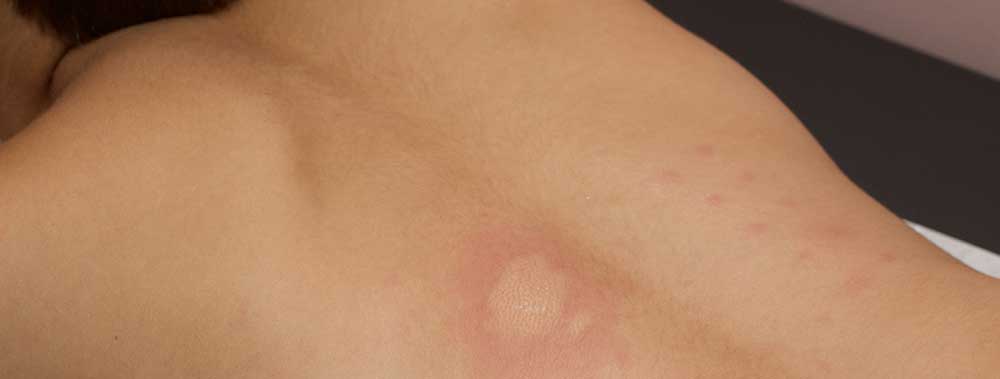Skin Prick Testing

Skin prick testing immediately identifies allergic reactions to allergies such as certain foods, mold, pollen, dust mites, and pet danders all at once.
Procedure
After cleansing the skin with alcohol, a nurse will test an area on the patient’s forearm or back. He or she will use a pen to label the area in a grid-like pattern that indicates where the testing substance (allergen) is to be applied. The nurse will then prick the skin with a needle or lancet containing a specific substance or allergen to which the patient may be allergic. After a waiting period of about 15 minutes, the doctor will evaluate the results of the test.
Positive skin testing reactions are typically a red, itchy area with a raised center that may look like a mosquito bite. Skin testing on the back is compared with negative (saline) and positive (histamine) control tests to help gauge the intensity of the reaction.
Medications & Allergy Testing
The following medications may interfere with allergy testing and should be discontinued prior to the test procedure:
- Antihistamines. Patients should not use many over-the-counter antihistamines, cold medications, sleeping aids and allergy such as Benadryl (diphenhydramine), Chlor-Trimeton (chlorpheniramine), Tavist (clemastine), Robitussin Night Time andTylenol PM at least three days prior to the testing. Additionally, patients should not use over-the-counter Claritin or Alavert (loratadine), Allegra (fexofenadine) along with Zyrtec (cetirizine) one week prior to skin testing. Prescription antihistamines, such as Xyzal (levocetirizine) and Clarinex should also be stopped seven days prior to the skin testing. Astelin, Astepro and Patanase nasal spray should be stopped five to seven days prior to testing, but intranasal steroids may be continued.
- Beta-blockers. Patients should not use beta-blockers when testing is planned. These drugs must not be discontinued without physician guidance, so it is extremely important to consult the allergist to design a discontinuation program if skin testing is required.
- Antidepressants. Patients should discontinue the use of some antidepressants such as amitriptyline one week prior to skin testing. However, some of the newer antidepressant-type medications do not interfere. Please contact the office with the names of your medications to find out which antidepressants might interfere with allergy testing.
Please call the office for any questions on medications.
